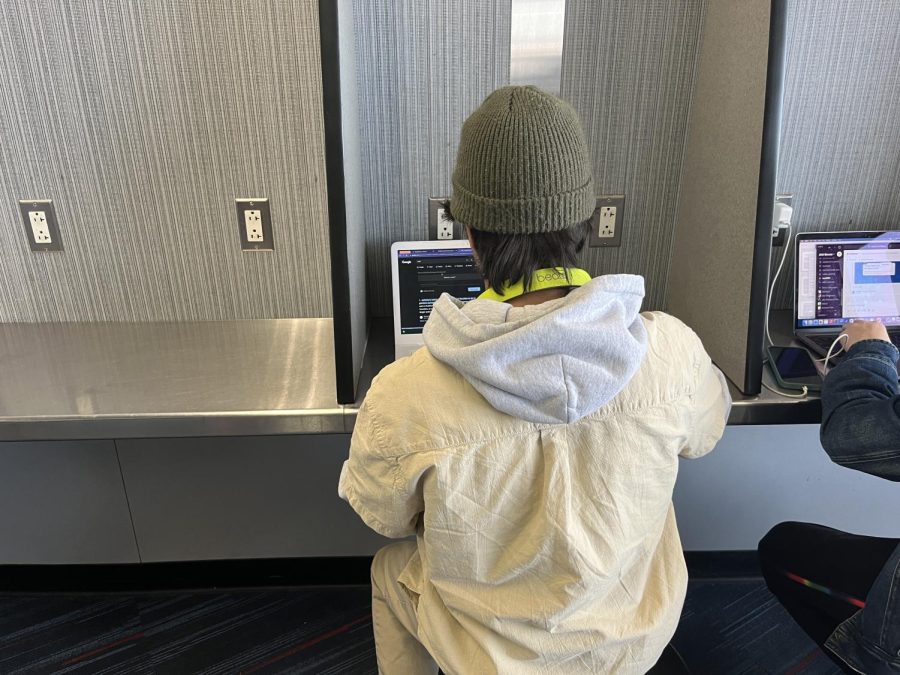Introduced earlier this year by Republican senators, a new bill is attempting to roll back child labor laws in Iowa. Titled Iowa Senate File 167, the bill would allow children as young as 14-years-old to work hazardous jobs in various dangerous industries, including mining, meatpacking, demolition and logging sectors.
For Iowa Senate File 167 to pass, the state’s department of workforce development would have to approve the bill and its described “apprenticeship” for children. The bill would allow children to work until 9 p.m. instead of 7 p.m. during the school week and permit kids to drive themselves up to 50 miles to and from work.
Senior Sarah Chen believes that it is the state’s job to protect its citizens, especially children, but this bill would do the opposite. “Children at the ages of 14 and 15 don’t have a good idea of what could happen to them if they enter industries like meat processing, mining and demolition,” she said. “So when these teens are given these jobs as potential options, they’re putting their entire lives at risk.”
Though legislators describe the bill as an effort to provide more work opportunities for Iowa teenagers, the proposal has received disturbing support from questionable lobbies. Only eight lobbies have publicly registered in support of the bill: three of which notoriously embody anti-worker national ideals, while the other five represent Iowa employers who routinely violate child-labor laws.
Despite the wording of the bill specifying that work cannot interfere with children’s heath, opponents of the bill cite a major concern: the bill, if passed, would allow employers off the hook in the event that a child is injured while working; employers can only be held liable in instances of gross negligence or willful misconduct.
Less than a 100 years have passed since the Fair Labor Standards Act took action against oppressive child labor, yet for Iowans, this battle has to be fought again.
Mark Lauritsen, the international vice president of United Food and Commercial Workers International Union, has immense concerns regarding House File 167. “This is a sick, sick bill. Any legislator in the state of Iowa that thinks this is an okay thing to do has got a real serious problem in their head about what’s really important in life,” he said.
Considering the history that Iowa has in the exploitation of child workers, this bill will only exacerbate the issue. A 2008 raid of a meatpacking plant in Postville, Iowa revealed 32 children working with power shears and circular saws.
“The extreme physical risks of these industries should not be something a high schooler is consistently dealing with,” Chen continued. “Also, many children who would pursue jobs in these industries are from low-income families, so this bill will further harm disadvantaged kids. Companies should never rely on young labor to do the demanding work that is needed to uphold these industries.”
As Chen noted, what is most concerning is that bills like Iowa Senate File 167 directly harm the most vulnerable population of child workers: Latino immigrant children. Latino immigrant children are at the bottom of the labor market and have limited opportunities, making them prone to taking hazardous jobs out of desperation.
Upon crossing the Southern border, sometimes by themselves, Latino children work with hazardous machinery that violates child labor laws. Alone and exploited, children as young as 13-years-old work construction jobs instead of attend school, package Cheerios at a factory during the night and scavenge for day-labor jobs that start before the crack of dawn.
This is a dangerous pattern that junior Margil Sanchez Carmona has noticed. “When I think about the reasons why children and teens work, there are three main reasons: to support their families, to generate funds for college and to build self reliance,” he said. “Lowering the age in which children can work would impact those who work because of the first and second reason— and are usually children who are minorities.”
As people continue to willfully ignore the issue that is plaguing childrens’ lives and traveling through legislature halls, everyone who benefits from this work is guilty.
“If the government shows it will only offer inadequate solutions, it’s time we start to really think about the roots of these issues and adapt a more supportive mindset when it comes to the issues faced by our fellow citizens,” Carmona concluded.
The American public needs to step up, denounce such working procedures and advocate for change. Until there is a societal shift, this exploited, unacknowledged and, more often than not, unknown workforce will thrive as the systems meant to protect children continue to deteriorate.









